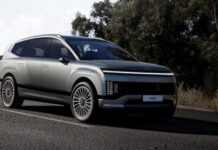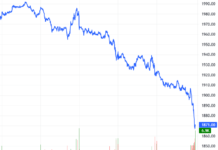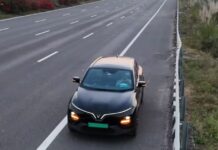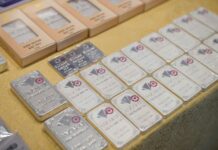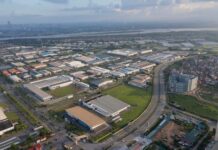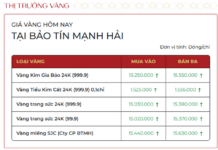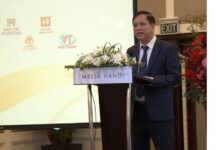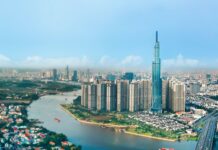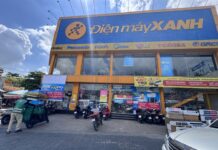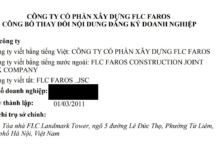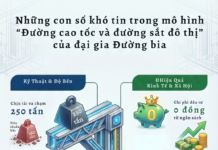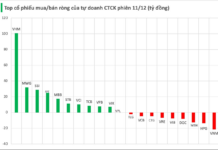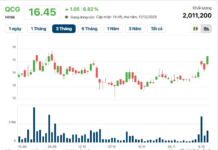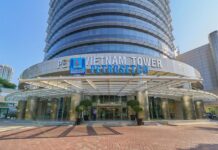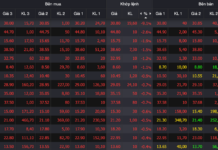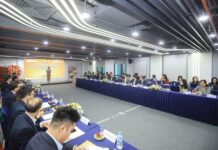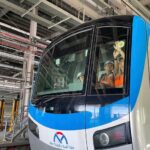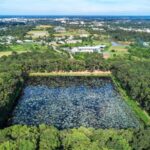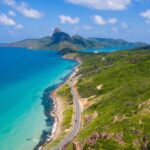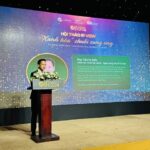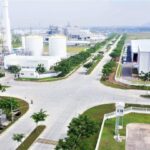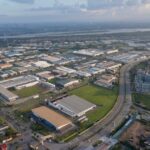
Ecosoi founder Vu Thi Lieu has over 15 years of experience in the environmental sector as a lecturer at the Faculty of Environment, Hanoi University of Business and Technology. Beyond her academic research as a master’s graduate in environmental studies, Lieu was driven by pressing environmental concerns to take a hands-on approach to addressing ecological issues.
Lieu shares that Vietnam has over 47,000 hectares of pineapple plantations, with farmers harvesting over one million tons of fruit annually while discarding several million tons of pineapple leaves. However, the predominant method of leaf disposal is burning, which releases thousands of tons of CO2 with each burn.
Of greater concern is the use of leaf-burning accelerants by farmers to expedite the process, which can have detrimental effects on the environment. These chemicals can kill microorganisms in the soil and potentially contaminate local groundwater sources.
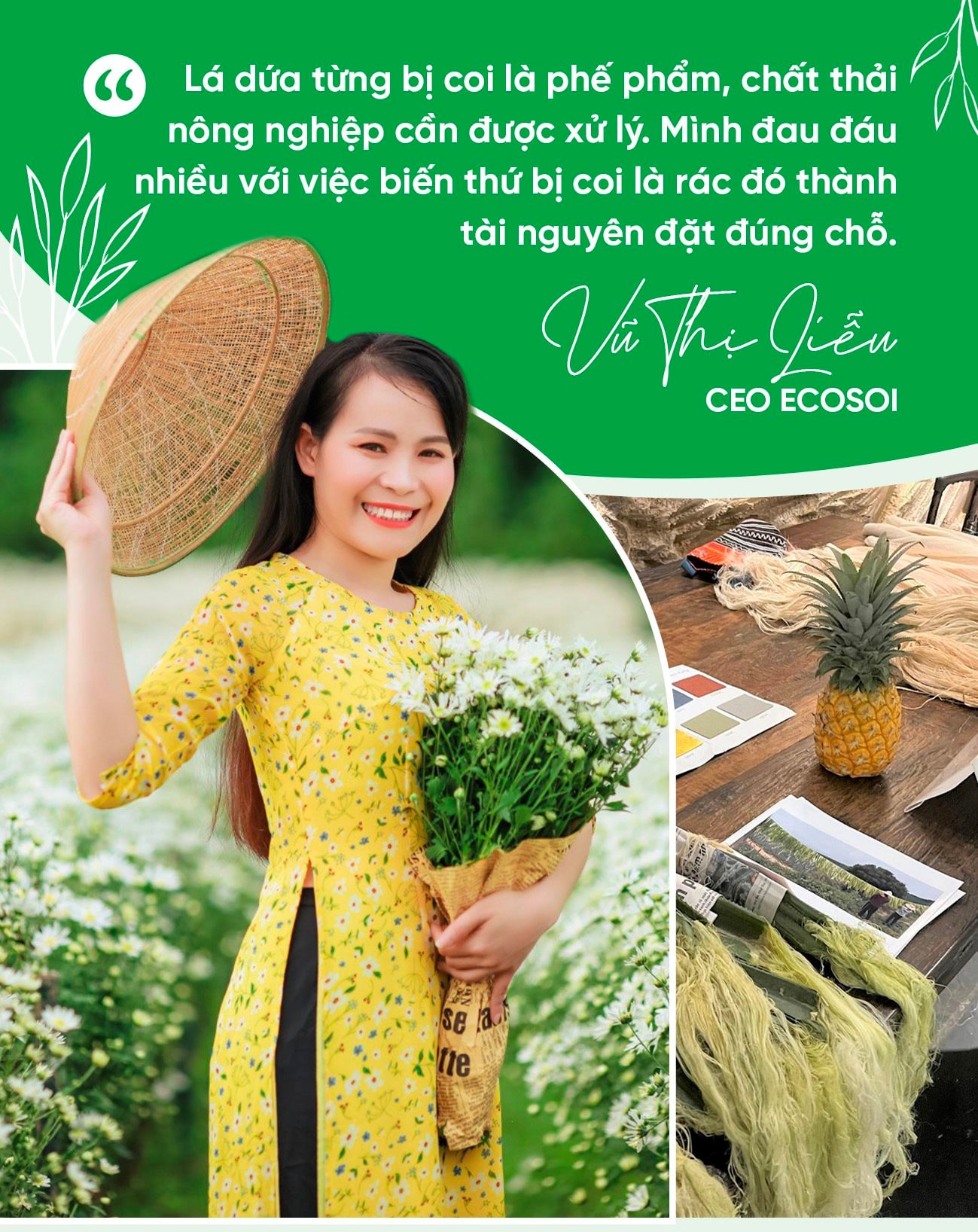
“Each year, several million tons of leaves are discarded after the pineapple harvest. Pineapple leaves were once considered waste, agricultural byproducts that needed to be disposed of. I was deeply troubled by the idea of turning this so-called trash into a valuable resource,”
Lieu confides. At that time, she had no intention of establishing a company or embarking on a startup journey with this “waste” material.
“It was during my lab research that I discovered the potential to transform pineapple leaves into textile fibers. The possibility of spinning yarn from these leaves fascinated me. It took several months to complete the research on pineapple leaf fibers, and it was then that the idea of becoming a startup began to take root,”
Master Vu Thi Lieu reveals.
Initially, Lieu’s primary focus was on addressing the issue of leaf burning by farmers after the harvest season. She collaborated with Nguyen Van Hanh, the founder of the HapPhuc agricultural cooperative, to develop a machine that could extract fibers from pineapple leaves. This marked the inception of Ecosoi.
“Ecosoi Joint Stock Research, Production, and Development Company was established in 2021 with Hanh and another partner based overseas. This partner is the Chairman of ‘Keep It Beautiful Vietnam,’ an organization dedicated to reviving traditional crafts that are in decline. At its inception, Ecosoi had a real capital contribution of one billion VND, but we invested 800 million VND in product development and infrastructure,”
“After successfully producing the pineapple leaf fiber extraction machine, Ecosoi accelerated its efforts by transferring the technology and placing orders with cooperatives and entities with existing raw material sources and local labor forces. This enabled these organizations to proactively produce and sell the raw fiber back to our company.”
Notably, Ecosoi’s emergence coincided with the height of the COVID-19 pandemic. As urban residents flocked back to their rural hometowns to avoid the outbreak, the economic downturn left many without stable sources of income upon their return.
“Ecosoi was established not only to protect the environment and enhance the value of pineapples but also to create livelihoods for rural residents and disadvantaged members of society, particularly women in these communities,”
Master Vu Thi Lieu recounts.

Ecosoi’s current raw material sources are concentrated in the provinces of Thanh Hoa, Nghe An, and Ninh Binh, with its warehouse and factory located in Quynh Luu, Nghe An, under the management of Nguyen Van Hanh. Lieu shares that Ecosoi is currently contracting approximately 5,000 hectares in Thanh Hoa and over 2,000 hectares of pineapple plantations in Nghe An.
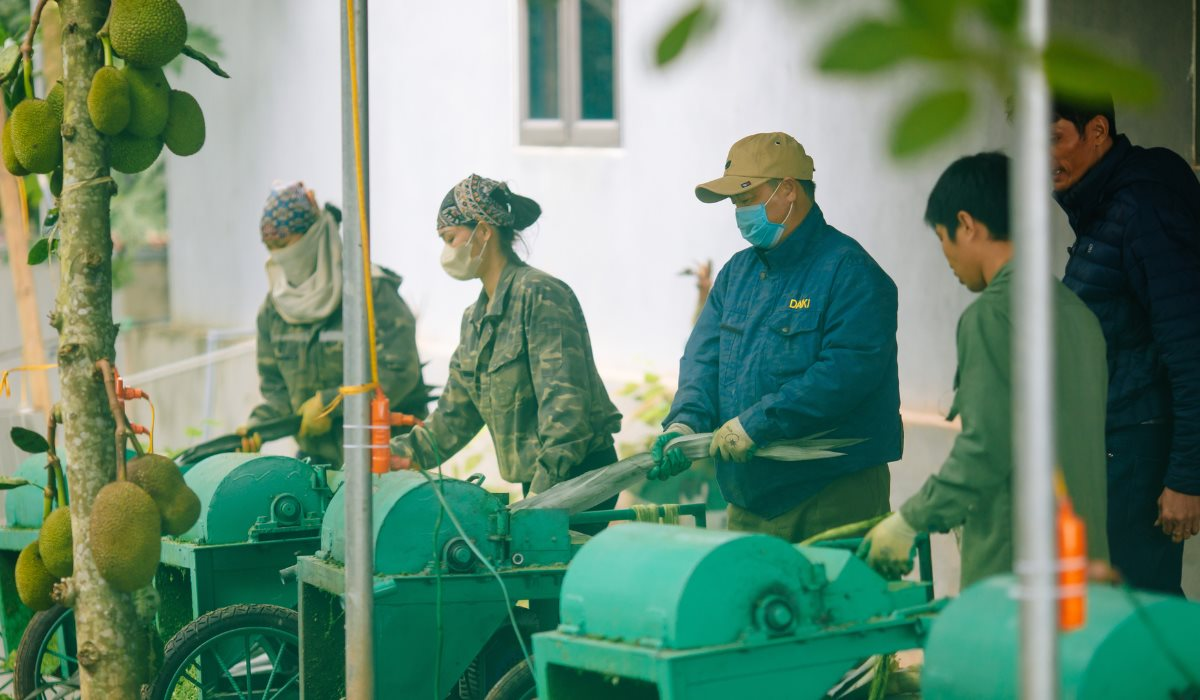
“Each fiber extraction machine costs between 45 and 50 million VND and can process 250-300 kg of fresh leaves per day, yielding an average of 4-5 kg of dry fiber as the final product. A typical pineapple-growing household cultivates 3-5 hectares of pineapples, producing 1.5-2.5 tons of fiber. Instead of burning leaves and polluting the environment, farmers can earn an additional 200-350 million VND per year from selling pineapple fiber. Ecosoi has also transferred machines to the Central Highlands, specifically Dak Lak, to provide ethnic minority communities with an additional source of income during the agricultural off-season,”
the Ecosoi CEO explains.
However, Lieu reveals that the real challenges began after successfully researching and producing the raw pineapple fiber. She encountered resistance from fiber-spinning units, who questioned the feasibility of spinning yarn from this novel material.
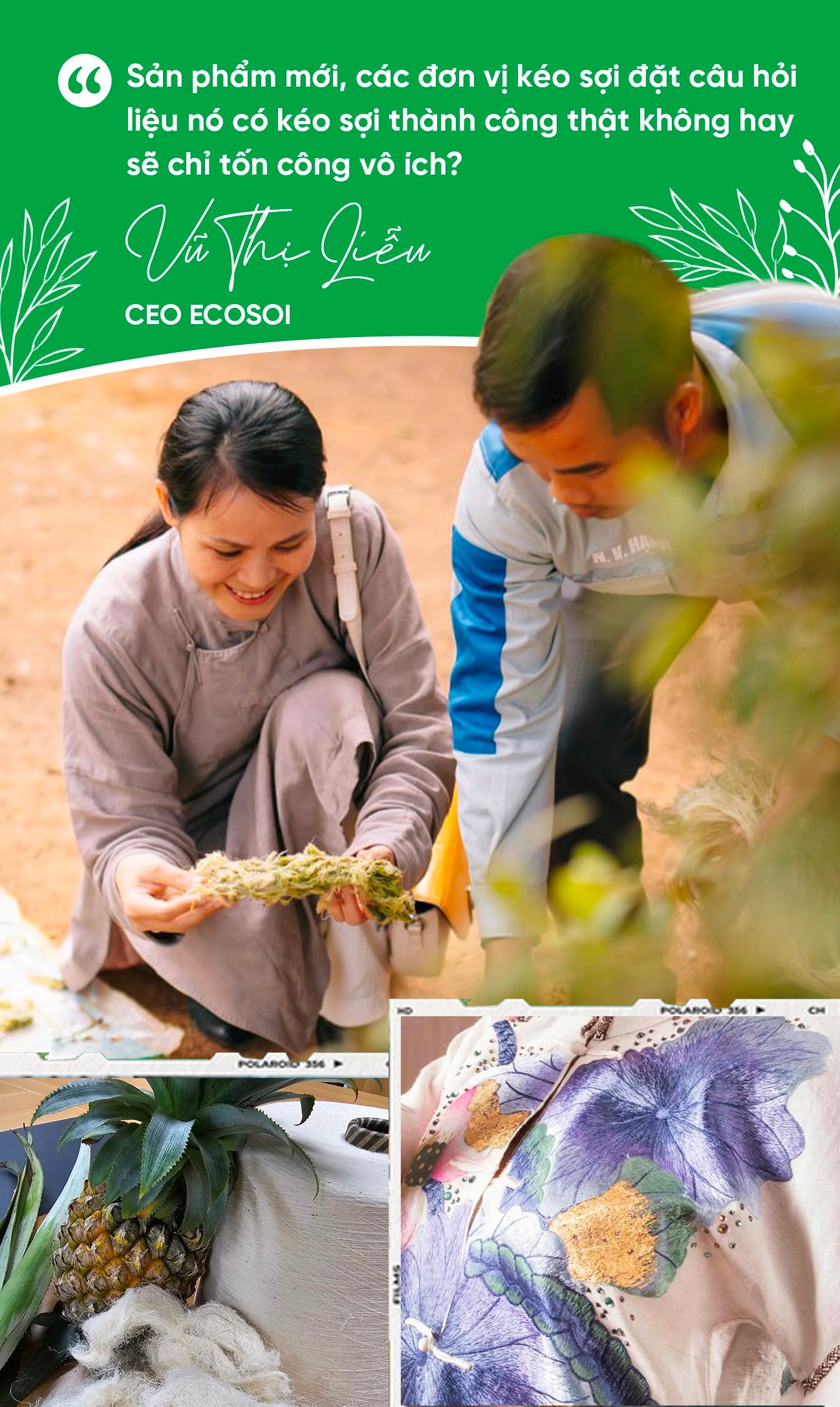
“As a new product, spinning units were skeptical, wondering if it was even possible to spin yarn from pineapple leaves or if it would be a futile effort. Another concern was the reluctance to experiment, as any malfunction during the spinning process could result in the loss of an entire machine worth hundreds of billions of VND,”
Lieu shares.
Faced with this reality, Ecosoi’s founders continued their research to transform the raw fiber into spinnable cotton and subsequently spin yarn from it. By early 2023, they had produced yarn coils made from pineapple leaves. Following this success, Lieu embarked on the task of converting the pineapple yarn into fashion fabric.
“I am not from the textile industry, so I faced many challenges initially. However, I am grateful to the pioneers in the industry who guided us, enabling Ecosoi to successfully produce coarse fabric and, later on, industrial fabric,”
she recalls.

Over two years ago, bolstered by initial product successes, Lieu applied to participate in Shark Tank Vietnam Season 5, seeking to raise 100,000 USD in investment for a 20% stake in the company. After negotiations, Ecosoi successfully secured a deal with Shark Hung Anh for 100,000 USD in exchange for a 30% stake, along with support in governance and enterprise restructuring.
However, this billion-dollar deal ultimately did not reach the final stage of investment signing. “At that time, I felt that Ecosoi was still small and lacked the necessary ‘karma,’ so we decided to halt the deal with Shark Hung Anh. Perhaps in the future, when Ecosoi grows stronger, we may reconsider collaboration with the Sharks. Shark Tank opened a new path for Ecosoi, as we gained over 20 new clients after the show, compared to just one before our appearance,” Lieu reveals.
Currently, Ecosoi has exported its products to various countries, including Japan, Taiwan, South Korea, China, Hungary, and the United States, and has been invited to exhibit at green fashion events worldwide.
Notably, after the “shark tank” experience, Ecosoi successfully closed two more investment rounds.
“A private investor reached out to Ecosoi after our appearance on Shark Tank. We had a Zoom call, and they spent a day at our company before finalizing the deal and transferring the funds the very next day. This round brought in 1.5 billion VND for a 15% stake. Following this, we also secured investment from a Vietnamese investor,”
the Ecosoi CEO shares.
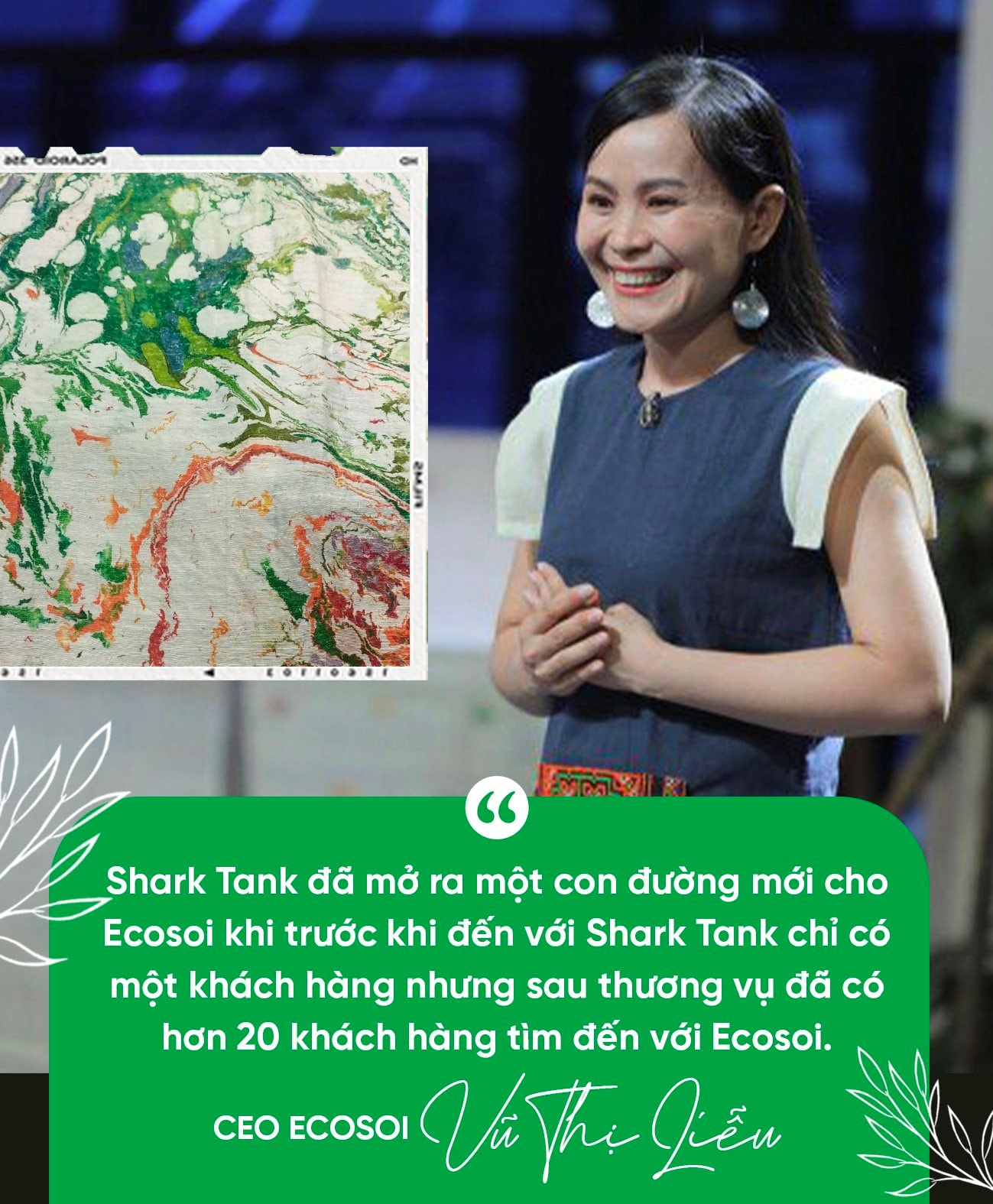
In 2022, Ecosoi achieved a revenue of approximately 4.7 billion VND. This figure increased to around 40 billion VND in 2023 and is projected to reach 71.5 billion VND in 2024. The profit margin stands at approximately 15%.
Regarding competitive advantages in the market, Lieu assesses: “Ecosoi has a technological edge, producing an average of 4 kg of fiber per day. Additionally, during leaf harvesting, while our competitors require 67 kg of leaves to produce 1 kg of fiber, Ecosoi needs only 55 kg. Moreover, a typical fabric manufacturer uses 65 liters of water to produce one meter of fabric, whereas Ecosoi only requires 30 liters for scouring and washing while maintaining color and fiber quality.”
“Realistically, cotton fiber will continue to dominate the market in the foreseeable future due to its millennia-long development history, whereas pineapple fiber is still relatively new. Pineapple fiber from Ecosoi is not intended to rival cotton but rather to offer consumers an additional choice,”
she adds.
According to the founder, 80% of Ecosoi’s revenue comes from exports, while the domestic market accounts for the remaining 20%. Lieu expresses her desire to develop the domestic market further so that Vietnamese consumers can embrace products made from local materials by local artisans.
“After Ecosoi successfully produced fabric from pineapple fiber, several fashion designers approached us for collaboration. Although the numbers are still modest, it is a positive sign that Ecosoi can contribute to promoting ‘Made in Vietnam’ products globally,”
CEO Vu Thi Lieu states.
Ecosoi’s pineapple fiber has already featured in fashion collections, including the “Binh Minh” collection designed by Vu Viet Ha and showcased in Tokyo to commemorate 50 years of diplomatic relations between Vietnam and Japan.
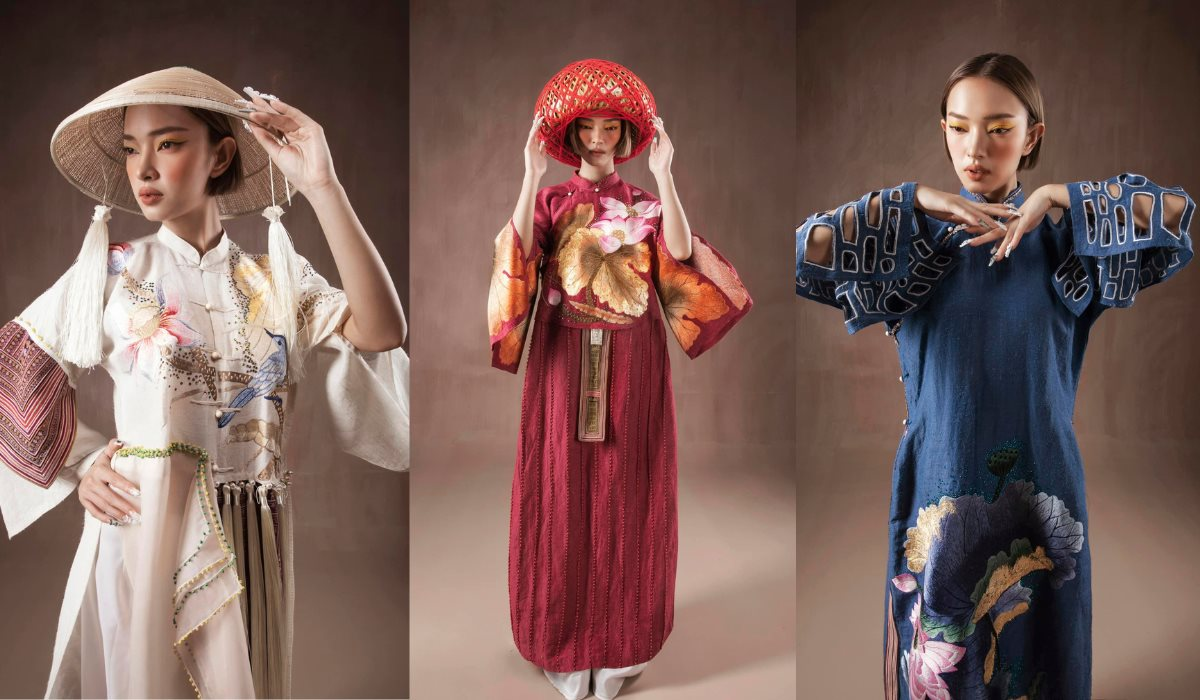
Ecosoi’s pineapple fiber featured in a fashion collection.
Reflecting on her entrepreneurial journey, Vu Thi Lieu sums it up with two words: “Boldness” and “Action.”
“If I hadn’t been bold enough to pursue pineapple leaf fiber relentlessly, Ecosoi wouldn’t exist today. It took unwavering determination to turn the seemingly impossible into reality. As a startup of just over three years, I may not be in a position to offer extensive advice or lessons to aspiring entrepreneurs, especially women, but one thing I always remind myself is to persistently pursue the core vision I established from the beginning,”
asserts Ecosoi CEO Vu Thi Lieu.
Sustainable Con Dao: Embracing a Circular Economy for Long-Term Prosperity
To foster sustainable development in Con Dao, aviation and high-speed ferry businesses have actively risen to the occasion with a plethora of supportive initiatives. These initiatives are designed to turn the vision of socioeconomic progress, hand in hand with environmental conservation, into a tangible reality.
The Green Age of IR: A “Greening” Strategy for Vietnamese Enterprises to Attract Capital
At the IR View seminar on ‘greening’, held as part of the IR Awards 2024 ceremony on the morning of September 24, leaders from VietinBank, PAN Group, Vinamilk, and ACB revealed their secrets to attracting international capital. They shared insights on effective Investor Relations (IR) practices and their strategies for sustainable development in the new era of a green economy.

